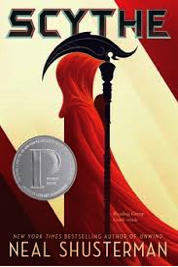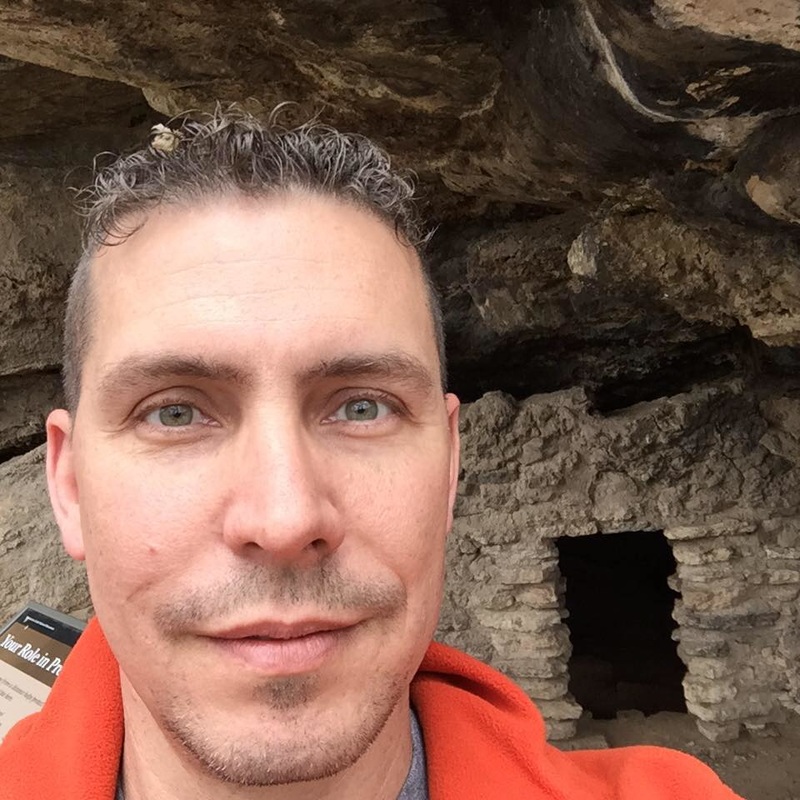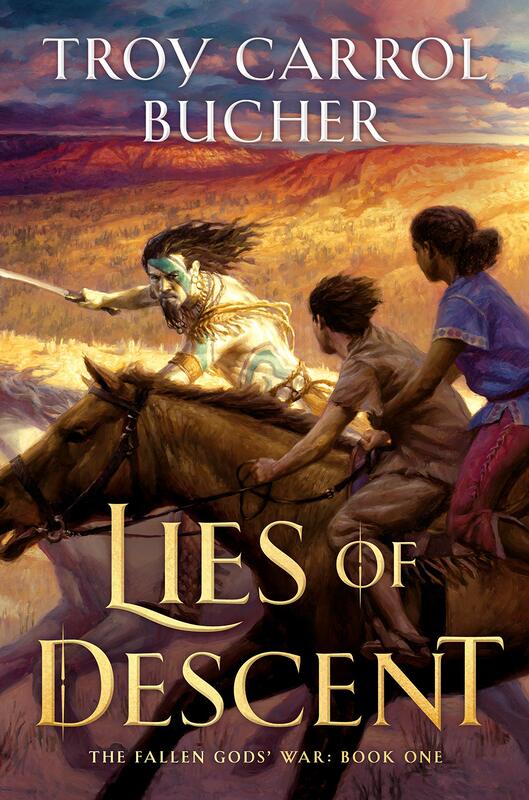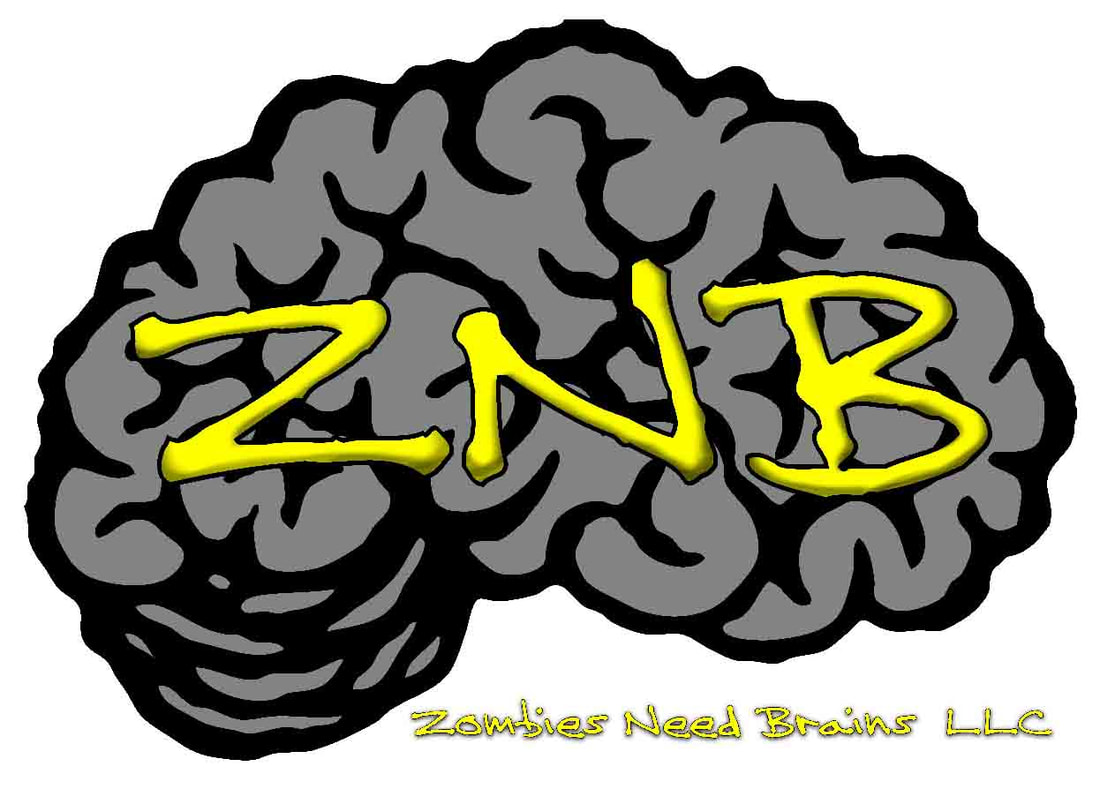I’ve heard the name, but never read anything by Neal Shusterman until now. While it is only January, I can easily see this book as being the best I read all year. The world, while fabricated into a narrow utopian future where society has essentially culminated, is intriguing because of the moral dilemmas this creates. When no one can die and there is little left to invent, what makes life worth living without the fear of death, without loss? Society must replace nature with a new mechanism. Enter the scythes and gleaning (killing). While the story says that scythes were created to control growth, the numbers do not align with what would be required for population control. I tend to see the scythes as an attempt to restore the value of life in the midst of stagnation.
One of the things that makes this book such a good read is that it forces the reader to look at death, not as a random occurrence, but as a conscious choice. The different methods Scythes use for determining who they glean is morbid, yet fascinating, providing a structured vision into the unknowable chaos behind who lives and dies...almost like bearing witness to God’s plan if you are the religious sort. The writing is superb, and the apprenticeship of Citra and Rowan is a perfect mechanism for creating deep and dynamic characters as they are forced to examine everything they feel and think about society, people, life and death. So who will like this book? While it is marketed as YA and SF (more about this in a moment), the nature of the story makes it a great read for adults and teens who are into just about any genre. I can’t think of anyone over 13 I wouldn’t enthusiastically recommend this book to...in fact I’ve already recommended it to two people that are not Science Fiction readers. Now, about the YA tag. I tend to steer away from reading YA novels, and it almost put me off of reading Scythe. It’s not because of the writing (most YA books I have read are very well written), but because I like my Science Fiction and Fantasy on the deeper and darker side. That being said, there are a lot of books initially shelved in the Science Fiction and Fantasy section that have been moved over to YA. I recently found Brandon Sanderson’s Mistborn in the YA section of a Barnes and Noble. I wouldn’t call the Mistborn series YA, but the lines have blurred so much that just about anything can be shelved with YA--especially if there is a young protagonist. On a recent YA panel at a convention I heard the words, “Write about anything, the kids can take it.” I believe the speaker, unless we are talking erotica or splatter or some such, but it is problematic when differentiating between the two subgenres. For the most part, YA tends to deal with topics like transitions, early loves, relationships, dealing with loss, identity, etc., but coming-of-age novels have typically been found in the adult section because they transition to more adult themes as they progress. Under this frame of reference, I think it better to delineate YA from adult by where the story arc ends vice where it begins. So where does that place Scythe? It certainly deals with YA topics like transition, relationships, identity, loss, and fitting into cultural norms, but it also grapples with morality, society and culture from a more mature perspective. This is especially true of the journal entries used to begin most chapters. Having not read book two, I come away from book one with the feeling that the ending has turned the corner into adulthood, and that the series could quickly progress into mostly adult themes...I’ll get back to you on the answer when I get through the series. But I will say that so far, this is the most “adult” YA I have read, and that you should go out and buy it today.
0 Comments
|
Troy Carrol BucherReader, Writer, Runner in Southwest Oklahoma... recent addition to the DAW family. Archives
July 2019
Categories
All
|



 RSS Feed
RSS Feed

